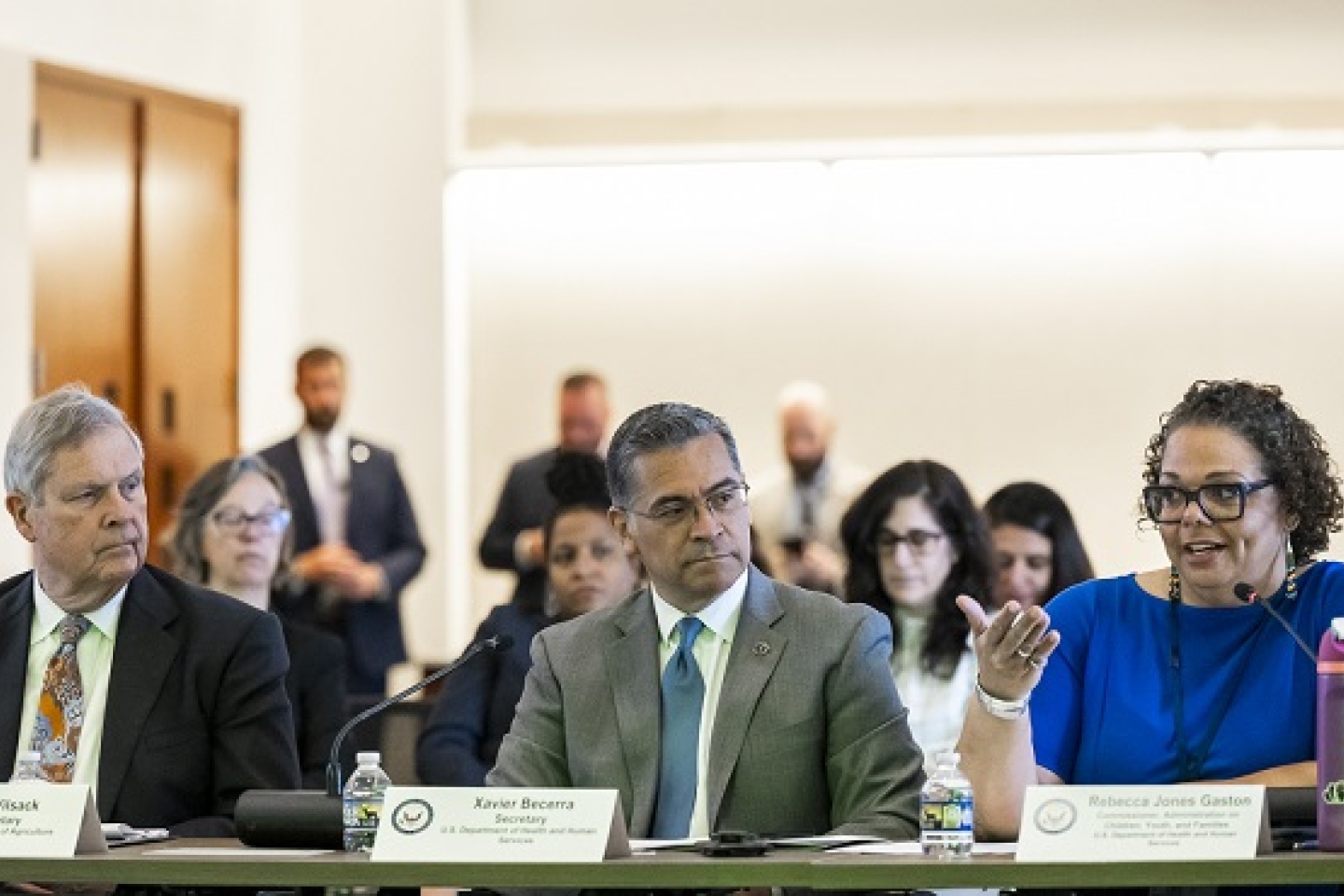At USICH Meeting, Council Focuses on Youth Homelessness
The U.S. Interagency Council on Homelessness (USICH) met this month to discuss barriers and innovation at all levels of government to prevent and end youth homelessness, which disproportionately impacts people of color, people who identify as LGBTQI+, people with disabilities, English learners, and youth who are pregnant or parenting.
During the meeting led by USICH Chair and Health and Human Services (HHS) Secretary Xavier Becerra, leaders heard from federal officials, national advocates, local providers, and people with lived expertise of homelessness, including HHS Administration on Children, Youth, and Families (ACYF) Commissioner Rebecca Jones Gaston; SchoolHouse Connection, a leading national expert on the early care and education of children and youth experiencing homelessness; Covenant House Alaska, the state’s largest provider of youth homelessness services; and the Youth Alaska Action Board on Housing and Homelessness.
More than 34,700 youth and young adults under the age of 25 were experiencing homelessness on their own on a single night in January 2023. However, this is likely an undercount because many youth experience “hidden” forms of homelessness living in motels/hotels or on family/friends’ couches. Over the course of the 2021-2022 school year, public schools reported 1.2 million students experiencing homelessness—a 10% increase from the previous school year—and more than 75% of them were experiencing hidden homelessness in unstable and sometimes unsafe environments. Nearly one-third of youth experiencing homelessness are or have been in the foster-care system at some point.
In his FY 2025 budget, President Biden asked Congress to guarantee a housing voucher for every youth aging out of foster care and at risk of or experiencing homelessness. In the coming months, USICH will launch a multi-agency initiative to develop a coordinated federal strategy to prevent and end youth homelessness. In the last year, the federal government has taken the following actions to address the crisis of youth homelessness head-on:
- Through the Runaway and Homeless Youth (RHY) Program, HHS awarded nearly $4 million in grants to design and deliver community-based demonstration initiatives to prevent youth homelessness.
- Through the Foster Youth to Independence (FYI) Voucher Program, the Department of Housing and Urban Development (HUD) allocated more than 1,000 vouchers for youth aging out of foster care and at risk of or experiencing homelessness.
- HHS’ Family and Youth Services Bureau (FYSB) and Children’s Bureau (CB) released new guidance to RHY grant recipients to ensure eligible young adults can access HUD’s FYI vouchers.
- HUD released a technical assistance resource on “Combining RHY and Youth Homelessness Demonstration Project Resources.”
- ACF and USDA published a joint Dear Colleague Letter entitled “SNAP Exceptions for Youth Experiencing Homelessness and Exiting Foster Care” to ensure youth currently or previously experiencing homelessness and youth in foster care have opportunities to ensure their basic needs are met.
- HUD accepted applications for $50 million in Youth Homelessness System Improvement grants for communities to either improve or create response systems for youth at risk of or experiencing homelessness.
- HUD awarded $60 million to 16 communities through the Youth Homelessness Demonstration Program, which requires communities to establish youth action boards so young people with lived experience lead their communities’ effort to design, implement, and improve programs and policies to end youth homelessness.
For more on USICH meetings, click here.



